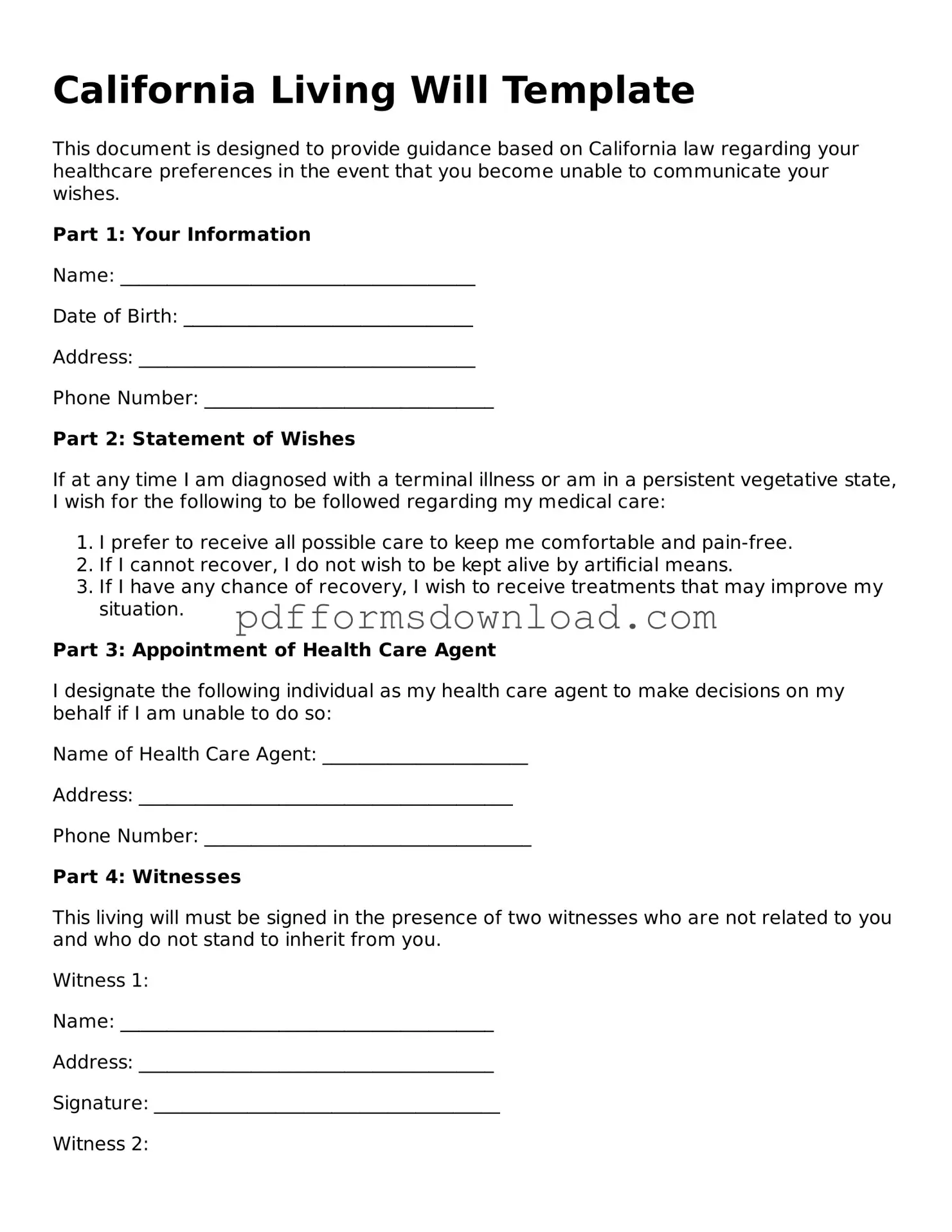What is a California Living Will?
A California Living Will, also known as an Advance Health Care Directive, is a legal document that allows individuals to outline their preferences for medical treatment in case they become unable to communicate their wishes. It specifically addresses end-of-life care and decisions regarding life-sustaining treatments.
Who should create a Living Will?
Anyone over the age of 18 can create a Living Will. It is particularly important for individuals with serious health conditions, those undergoing major surgeries, or anyone who wants to ensure their medical preferences are known in case of a medical emergency.
What should be included in a California Living Will?
A Living Will should include specific instructions about the types of medical treatments you want or do not want. This can cover life-sustaining treatments, resuscitation efforts, and preferences regarding pain management. Additionally, it may designate a health care proxy to make decisions on your behalf if you are unable to do so.
Is a Living Will the same as a Durable Power of Attorney for Health Care?
While both documents relate to health care decisions, they serve different purposes. A Living Will focuses on your wishes regarding medical treatment, while a Durable Power of Attorney for Health Care designates someone to make health care decisions for you. You can have both documents in place to ensure your preferences are honored.
How do I create a Living Will in California?
To create a Living Will in California, you can use a template provided by the state or seek assistance from a legal professional. The document must be signed by you and witnessed by two individuals who are not your relatives or beneficiaries. Alternatively, you can have it notarized.
Can I change or revoke my Living Will?
Yes, you can change or revoke your Living Will at any time as long as you are mentally competent. To do so, simply create a new document that states your updated wishes or write a statement revoking the previous one. It’s advisable to inform your health care providers and loved ones of any changes.
Will my Living Will be honored in other states?
While many states recognize Living Wills created in California, laws can vary significantly. It’s wise to check the specific laws in the state where you are receiving care. Some states may require additional forms or have different requirements for validity.
What happens if I don’t have a Living Will?
If you do not have a Living Will, medical decisions may be made by your family members or legal representatives, which could lead to disagreements or choices that do not reflect your wishes. Having a Living Will ensures that your preferences are clearly documented and followed.
Can I include organ donation wishes in my Living Will?
Yes, you can include your wishes regarding organ donation in your Living Will. Clearly stating your preferences can help ensure that your intentions are honored and can provide peace of mind to your loved ones during difficult times.
Where should I keep my Living Will?
Store your Living Will in a safe but accessible location. Inform your family members, health care proxy, and primary care physician about its location. It’s also a good idea to keep a copy with your medical records and to provide one to your health care providers.

